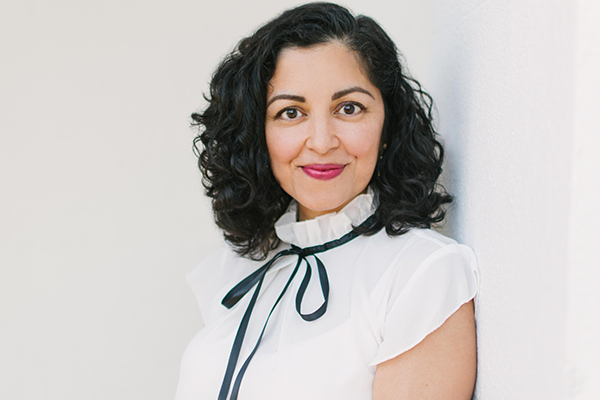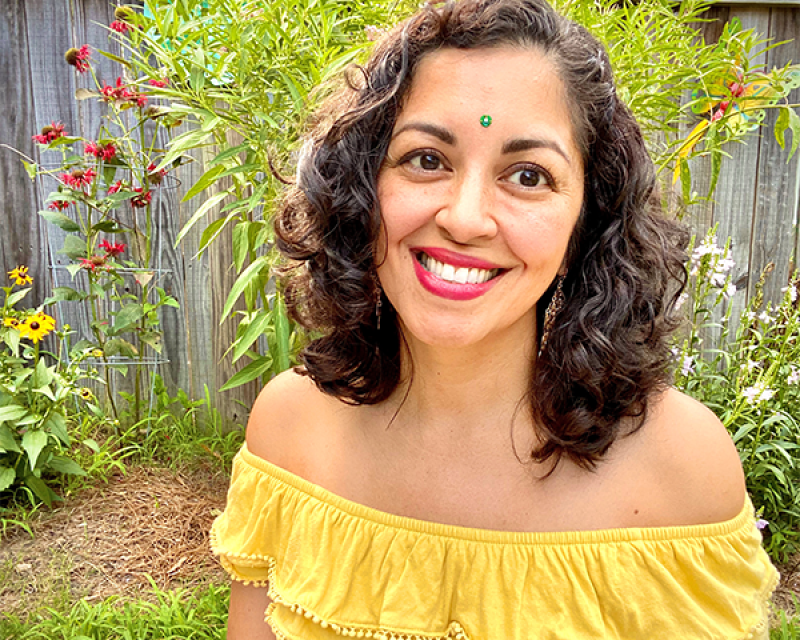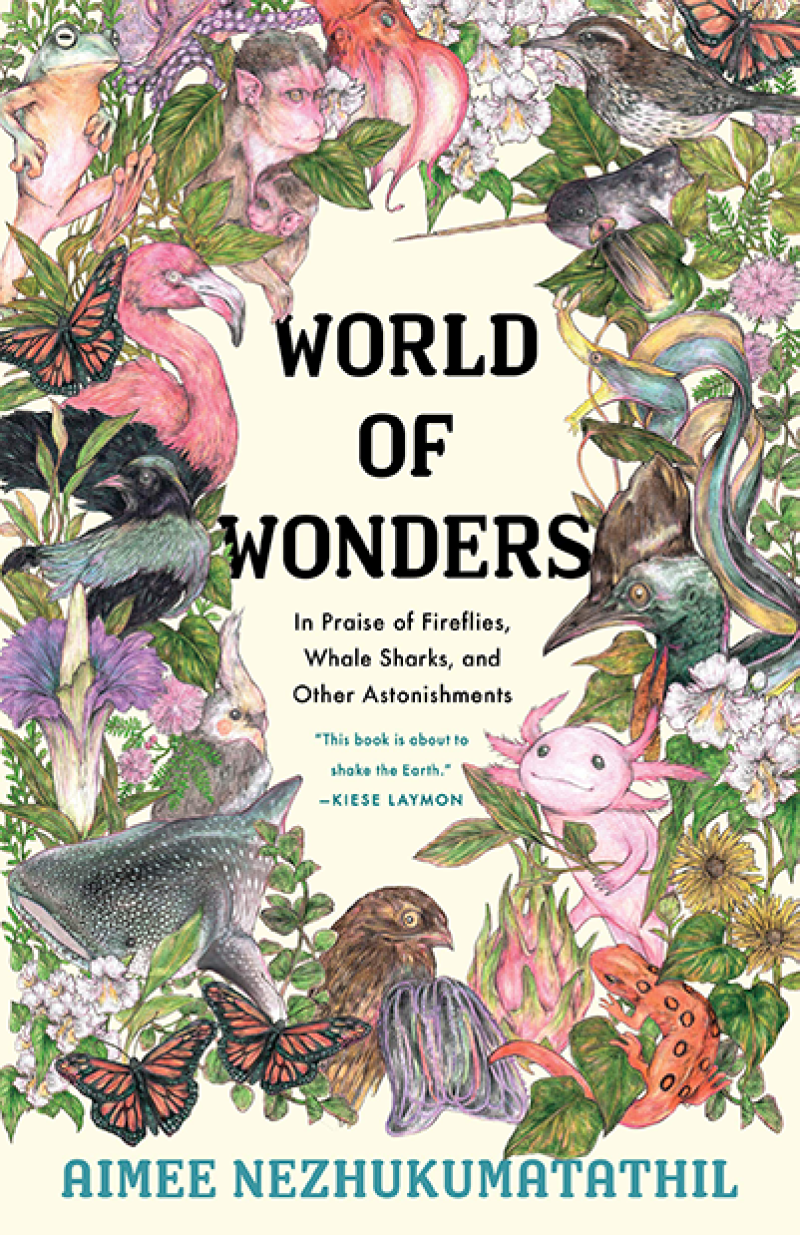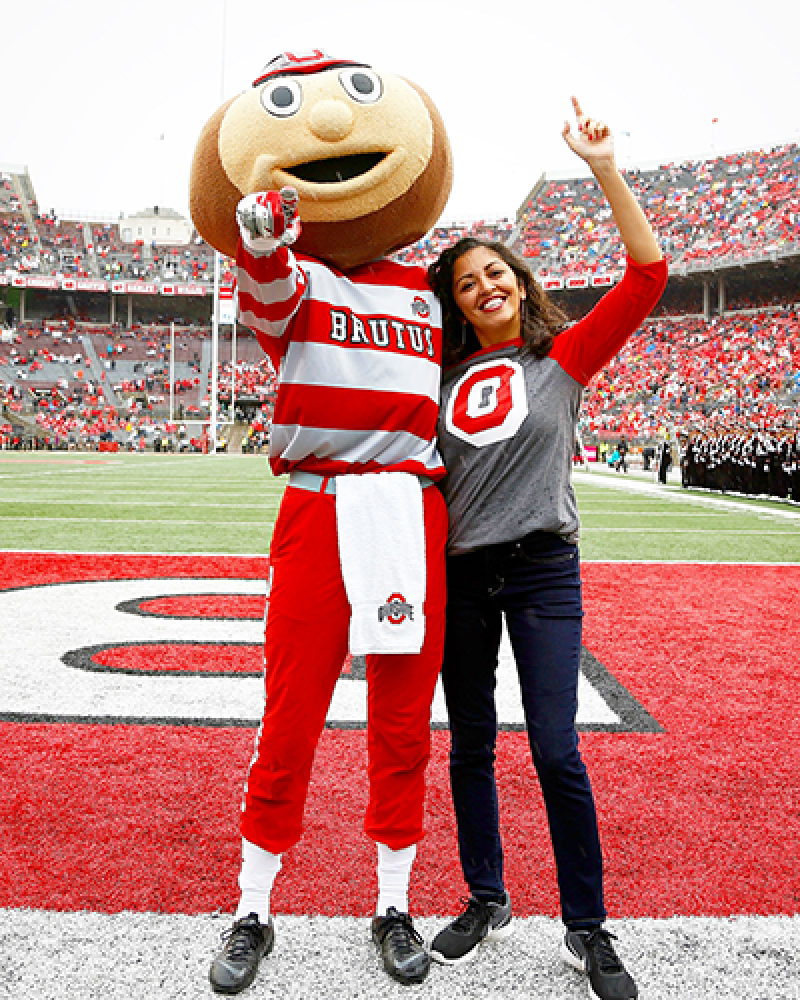Aimee Nezhukumatathil discusses 'World of Wonders,' Asian American representation in environmental writing


Photo courtesy of Aimee Nezhukumatathil.
Born in Chicago to a Filipina mother and South Indian father, Aimee Nezhukumatathil is a ’96 BA English and ’00 MFA poetry and creative nonfiction alumna of the Department of English.
A poet and essayist, Nezhukumatathil has received a poetry fellowship from the National Endowment for the Arts, the Pushcart Prize, a Mississippi Arts Council grant, the William Oxley Thompson Alumni Award and was named a Guggenheim Fellow in poetry. She is a professor of English and creative writing at the University of Mississippi.
Her recent book, World of Wonders: In Praise of Fireflies, Whale Sharks, and Other Astonishments, is an illustrated collection of essays about the natural world and how its inhabitants teach, support and inspire us. World of Wonders was named the Barnes & Noble 2020 Book of the Year and a Kirkus Prize Finalist for Nonfiction.
Nezhukumatathil will visit Ohio State on March 26 for a reading of World of Wonders through the MFA Program in Creative Writing Visiting Writers Series. A Q&A will follow her presentation.
This interview has been edited for length and clarity.

This is your first foray into nonfiction. What spurred that shift?
For the past 20 years or so, I’ve mostly published poems. I could always breathe in both genres, poetry and nonfiction, but essays help me draw a deeper breath, so to speak. The central question of searching for home is one I’ve been trying to answer my whole writing life, and I imagine I’ll spend the rest of my life answering it in some way or another. I have different answers for that now in 2021 — married and with two tween boys — than when I was 10 and looking at the nature books I checked out from our school library and wondering why I never saw an Asian American in them.
My husband had been begging me to write essays that included my childhood since we were dating. I balked at his suggestion for many years. After all, I barely ever saw any books with Asian Americans enjoying the outdoors. You’d think there weren’t any Asian American nature writers at all while browsing the nature section of a bookstore. I guess I internalized that — which I hate to even admit here — but it’s the truth, and it’s a kind of violence that has been done. But all of that is secondary to the most important thing: I just thought of what I loved about this planet, and shaping what I was obsessing about at the moment into essays became a very natural and fun project.
You seem to have a deep love, respect and appreciation of nature and creatures on Earth. Where did that originate?
My immigrant parents worked so hard in their jobs in the medical field when I was growing up, but they always had time to take me to the library or on walks or spend time with me in their garden. They wanted me to be a doctor, but that time they spent modeling wonder might have been the greatest gift they ever gave me. They unknowingly encouraged me to be a writer; watching and listening to them gave me the vocabulary and curiosity for the things I’d like to explore in my writing. I know I’m a better human because of it. I still have the same spirit of that little girl trailing behind them in the garden who fell in love with the smell of tomato leaves, and I hope my own sons will have at least a little bit of that, too.
You’ve talked about creating “a different vision of environmental poetry.” What do you mean by that and why work toward that change?
Poetry reminds us of our shared humanity. It makes the world feel a little smaller, and it can make you feel less alone. I hope to curate a more inclusive look at what poetry of the outdoors and environmentalism can mean. That includes showcasing writers with different backgrounds — socioeconomic, racial, physical abilities, sexualities. Poetry of the Earth should reflect the inhabitants of the Earth, which was not always the case in the publishing world. Also, being outside was always a place of comfort and magic for me, but I realize with great sadness that that feeling of comfort does not exist for everyone, especially many of my friends of color.
The essays in World of Wonders are accompanied by some beautiful illustrations — how do those two pieces complement each other?
It was very purposeful to include an Asian American illustrator who shared the same vision of wanting to showcase the majesty and strangeness and beauty of the natural world, and (my publisher) Milkweed’s brilliant designer Mary Austin Speaker worked to give it an old-school science textbook feel with single-color illustrations. It was very important to me to have animals and plants to be biologically accurate while still having about 2% whimsy in the illustration. My hope is that just like in picture books, seeing a visual representation of what I’m writing about will inspire and encourage the reader to learn more about that creature or plant.

Aimee Nezhukumatathil with Brutus Buckeye on the field in the Ohio Stadium in the fall of 2018. Nezhukumatathil was on assignment for ESPN to write an essay on mascots.
How did your time at Ohio State help prepare you for a career as a writer?
As an undergrad, I was a part of the Honors Program, through which I was in a dorm community of like-minded friends from day one on campus. In fact, during the pandemic, over a dozen of us got together for a reunion of sorts over Zoom; that's a Buckeye friendship 19 years and counting! The Honors Program led me to vibrant, specialized seminar classes I wouldn't have had access to otherwise. When I returned years later as a graduate student, having more of those enriching workshops was instrumental in teaching me how to read critically and how to create community.
Much of what I learned at Ohio State informs the way I teach my own MFA workshops and literature seminars. When faced with lots of rejection as a young writer, I quickly learned that you won't get anywhere if you wallow and stew over every 'no.' At Ohio State, I learned tenacity and from the late, great David Citino, I learned how to champion the quiet students and that you don't have to choose family or a career. Even at a big place like Ohio State, I found respite by writing for hours alone at Mirror Lake or at the Main Library. Even here in the Deep South and SEC country, I still bleed scarlet and gray and proudly — much to the chagrin of my neighbors — fly Buckeye flags in my yard. Ohio State was the bedrock for a lifetime of being curious in this world.
What do you hope readers take away from World of Wonders?
I try to not be prescriptive in this book, because really, who am I to tell other people how they should live? My hope is that readers are guided toward a possibility of tenderness and wonderment toward other living things.
I hope people get reminded of plants and animals they have always been curious about, and I hope that inspires them to learn more about those plants and animals. I hope people see that there is plenty of room at the table for people of all backgrounds to write about the outdoors. My biggest hope is that by reading about a plant or animal that is new to someone, we might feel some tenderness toward creatures and plants and people that we’ve never had direct experience with.
Is there anything else you’d like to add, emphasize or feel like we’ve missed?
I love the poet Kwame Dawes, and I always come back to this quote of his: “We are political by our noise and by our silence.” What we choose to be excited about is political. For the longest time, I’d kind of cringe, thinking I’m not bold enough to be political. His words really helped me own the power of my own enthusiasm. It’s not that Asian Americans weren’t writing literature about nature. The publishing houses chose not to publish them. That’s a political statement. We’re all political. We’re political by what we champion and what we stay quiet about.
I’ve just been so overwhelmed in the best way with the response to this book. I wasn’t sure anyone would care about my stories, but people with vastly different experiences than me have said how much they’ve connected to this book. To have it be on the New York Times Best Sellers list now for eight weeks and selected by Barnes & Noble as their Book of the Year is beyond my wildest imaginings. That’s not a humblebrag. I literally didn’t dream that was even possible for me. I want this book to be like I’m sharing things with a friend, to open up the conversation and take us back to a time when we all were filled with wonder. I wrote this book with love in mind, and I just hope it helps us to be a little more tender to living things we may not have seen or heard of before, to ourselves and to each other.
